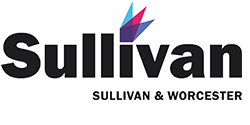
In March 2016, the Securities and Exchange Commission announced that AVEO Pharmaceuticals, Inc., a Massachusetts-based biopharmaceutical company, agreed, without admitting or denying the allegations, to pay $4 million to settle fraud charges alleging that AVEO and three of its officers misled investors regarding their dealings with the U.S. Food and Drug Administration. Companies and their officers can be held liable for any untrue statement of a material fact or omission to state a material fact required or necessary to make a statement not misleading. The AVEO case serves as a cautionary reminder that when a company is telling investors about its dealings with regulators, it must be accurate and tell the whole story.
AVEO is focused on developing and commercializing cancer drugs. To date, none of its drugs have been brought to market. However, in 2012, AVEO had a drug called Tivozanib relatively far along in the FDA approval process. Tivozanib was developed with the intention of treating kidney cancer and had already undergone a clinical trial in Europe.
With that trial completed, AVEO was prepared to move forward in seeking FDA approval for Tivozanib by submitting a New Drug Application (NDA). In preparation for filing its NDA, AVEO had an initial meeting with the FDA in May 2012. At this meeting, the FDA expressed concerns about the data from Tivozanib’s clinical trial in Europe. Particularly, the FDA was concerned that although Tivozanib appeared to slow cancer’s progression in patients, the lifespan of patients taking the drug was shorter than those taking another drug already on the market. The FDA expressed its belief that a second clinical trial would likely be necessary before it could approve Tivozanib.
In the month that followed AVEO’s meeting with the FDA, AVEO conducted additional analyses of the data from the clinical trial in Europe. AVEO estimated that a second trial would cost approximately $83 million and last roughly 3 years. AVEO’s officers believed that they could explain the data that concerned the FDA without conducting a second clinical trial and avoid undue delay and expense. Ultimately, AVEO decided against conducting the second clinical trial.
In August 2012, AVEO issued a press release discussing AVEO’s progress in submitting an NDA for Tivozanib. In this press release, AVEO mentioned that the FDA was concerned about the lifespan of patients taking Tivozanib, but failed to mention that the FDA had recommended a second study be conducted or that AVEO had considered conducting such a study.
That same day, AVEO held an earnings call with investors and analysts where it discussed Tivozanib’s progress. During the call, several analysts asked officers of AVEO about the meeting with the FDA and whether the FDA had made any recommendations for getting Tivozanib approved. The officers participating in the call did not discuss the second trial recommended by the FDA, but instead said that they “can’t speculate on what the agency might want [AVEO] to do in the future.”
AVEO continued to believe that it could explain the shorter lifespans of the patients in the clinical study in Europe through certain of its analyses. Moreover, Tivozanib appeared effective at slowing the progression of cancer. Accordingly, AVEO submitted its NDA for Tivozanib in September 2012 without conducting a second clinical trial.
In January 2013, AVEO raised $53 million in a public equity offering. Approximately three months later, in April 2013, the FDA publicly disclosed its prior recommendation to AVEO to conduct a second trial for Tivozanib. That same day, AVEO’s stock price dropped 31% and roughly one month later, the FDA denied approval of Tivozanib.
Fast forward three years later: in March 2016, the SEC filed a complaint charging AVEO and three former officers with fraud for failing to disclose to investors the FDA’s recommendation that a second clinical trial be conducted. The SEC also announced that AVEO agreed to pay $4 million to settle these charges without admitting or denying the allegations in the complaint. The charges against the former officers continue. In a press release, Paul G. Levenson, Director of the SEC’s Boston Regional Office stated, “Companies must be forthcoming about their communications with regulators so investors can make informed investment decisions while knowing what challenges may lay ahead.”
Considering what to disclose – and what not to disclose – presents some of the most difficult decisions for companies. What’s “material” lacks a bright line and is instead based on decades old case law about what’s important to reasonable investors. Companies should always be careful in choosing how and when they disclose to investors communications with regulatory bodies and ensure that they are telling the whole story. Companies and their officers should strive to accurately represent their dealings with regulators, so as not to mislead investors since they can be held liable for material misstatements or omissions.


